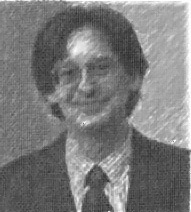The Educational Theory of Alfie Kohn
Analyst: Joseph Milnes |
 |
©2001 NewFoundations
The Educational Theory of Alfie Kohn
Analyst: Joseph Milnes |
 |
Alfie Kohn firmly believes that students need to be taught how to be responsible and respectful. Once this is accomplished, all other "content" can be learned at a more "reasonable" rate, with a greater threshold of proficiency. "Adults who are respectful of children are not just modeling a skill or behavior, they are meeting the emotional needs of those children, thereby helping to create the psychological conditions for children to treat others respectfully" (Kohn 1997a). The goal of education is to help students realize that they can think, learn, act, and change things.
Kohn believes that knowledge is a system of learned material, experiences, and/or facts. Knowledge does not necessarily always have to relate to traditional "content-areas". "Mistakes are not only an inevitable part of learning, but that learning could be described as a the process of coming too more sophisticated kinds of mistakes" (Kohn, 1999a).
"We can't blame "human nature" when children act aggressively or selfishly. Extensive research has shown that these qualities are no more natural than the impulse toward empathy or generosity" (www.alfiekohn.org/teaching/topics.htm). Kohn suggests that "we are more caring than we give ourselves credit for, and that our generosity cannot be reduced to mere self-interest (Kohn, 1990). Furthermore, he indicates that there are no limits to human potential.
Learning is a process in which the words discovery, exploration, and curiosity are found in abundance. "Learning is more important than the products that result" (Kohn, 1997c). "Skillful educators tap students' natural curiosity and desire to become competent. In a learning environment, teachers want to help students engage with what they are doing to promote deeper understanding" (Kohn, 1997c). "Someone who facilitates students' learning welcomes mistakes--first, because they are invaluable clues as to how the student is thinking, and second, because to do so creates a climate of safety that ultimately promotes more successful learning" (Kohn, 1997c). "Teachers who want to encourage intellectual growth give students time to be confused and create a climate where it's perfectly acceptable to fall on your face" (Kohn, 1999a).
"Students are not receptacles to be filled with knowledge, or clay to be molded. They, like all of us, are active meaning-makers. The implication, as one educator put it, is that teaching is mostly listening , and learning is mostly telling -- a dictum that requires us to rethink the use of lectures, worksheets, textbooks, and, for that matter, our preconceptions about what makes a good teacher" (www.alfiekohn.org/teaching/topics.htm). Kohn believes that teachers need to take the risks associated with leaving traditional grading and reward systems behind. Kohn argues, students who see themselves as doing an assignment in order to receive a gold star, an A, or an award are actually less likely to develop an interest in the subject matter or to challenge themselves to do their best (Kohn, 199c). Consequently, he encourages teachers to develop curriculum with the students in mind, and not traditional educational norms. In fact, Kohn states in The School Our Children Deserve (1999), that when the curriculum was engaging, students who were not graded at all did just as well on the proficiency exam as those who were. "Students interests may therefor help shape the curriculum, and a growing facility with words and numbers derives from the process of finding answers to their own questions" (Kohn, 1997c).
Society is an institution that has failed to realize the negative effects of stressing rewards, and other extrinsic forms of motivation in education. Unfortunately, too many institutions are involved in the educational process, which in turn, "muddies the water" and encourages a "work-place" mentality in the school setting. "Our use of workplace metaphors may compromise the essence of schooling" (Kohn, 1997c).
All children are to be both educated and schooled in a way that encourages "exploration, discovery, and curiosity". "The act of learning is ideally its own reward" (Kohn, 1997c).
People disagree for a plethora of reasons, but mostly because they have different sets of values and they are then put into a collaborative situation in which these values are subjected to scrutiny by the other group or individual. Consensus is achieved through active collaboration with a concentrated focus on the topic at hand and not intrinsic motivators. Unfortunately, the non-educators who assume leadership roles in the "realm" of education tend to have their opinions turn into options and then into policies, procedures, and practice.
http://www.alfiekohn.org/teaching/topics.htm
http://www.alfiekohn.org/teaching/lts.html
Kohn, Alfie. (1990). The Brighter Side of Human Nature. New York, New York. Houghton Mifflin Company.
Kohn, Alfie. (1997a). The Limits of Teaching Skills. Reaching Today's Youth. Summer 1997.
Kohn, Alfie. (1997b). How Not To Teach Values: A Critical Look art Character Education. Phi DeltaKappan, February, 1997.
Kohn, Alfie. (1997c). Students Don't Work'--They Learn. Education Week. September 3, 1997.
Kohn, Alfie. (1999a). The Schools Our Children Deserve: Moving Beyond Traditional Classrooms and "Tougher Standards". New York, New York. Houghton Mifflin Company.
Kohn, Alfie. (1999b). Punished by Rewards. New York, New York. Basic Books.